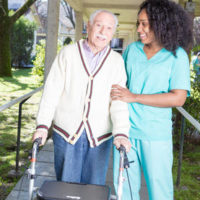How to Assess the Safety and Quality of a Nursing Home

As individuals enter their later years, their children may find themselves in the position of needing to take on the role of caregiver. In the beginning, it may be possible to care for their loved ones at home, but there may come a time when they need more care than the child can provide. In these circumstances, finding a nursing home may be necessary. However, in light of the frequent stories in the news about nursing home abuse, picking the right facility may seem impossible. Protecting a loved one who is likely in a vulnerable position physically and/or mentally is a primary concern of any family facing this decision. A recent study, assessing the frequency with which emergency room (ER) providers identify cases of elder abuse, illustrates why picking the best possible nursing home is so vital. The researchers found that ER doctors and staff failed to identify victims elder abuse in the vast majority of cases. Living in Florida, with one of the largest senior populations in the country, means there are an overwhelming number of nursing homes in operation. Before walking into one these homes, arming oneself with the right information and bringing a list of pertinent questions is the most effective way to make an informed decision on this highly important issue.
Information to Gather and Questions to Ask
The first step in evaluating the quality of a nursing home is to check if the facility is on the state’s watch list that tracks violations of state minimum standards for operation. Assuming the nursing home passes this step, the next stage is to visit the facility. Making an in-person visit is the only reliable way to know if the doctors and staff treat residents properly and seem to care about their well-being. Some issues to keep in mind and inquire about if any concerns arise include:
- the food. Does it look and taste good? Is it sufficient to prevent malnutrition? Do they customize food per the needs of individual residents?
- the sounds. How does the staff talk to the residents? Is it respectful? If music is playing, does the selection seem to be for the benefit of residents, or the staff?
- the smell. There are bound be some unpleasant smells, but are these smells overwhelming? Is the smell of stale urine pervasive? This could signal the failure to properly clean, which is a sign of neglect; and
- Are residents bruised or suffering from any other injuries? Note the location and shape of the injury. Is it a handprint, or a bracelet as if restraints were used?
Legal Options
If the worst happens and signs of abuse and/or neglect are present, legal options exist to hold the nursing home accountable. Negligence is the legal claim most commonly brought against nursing homes for cases of neglect and abuse, and can manifest as physical abuse, sexual abuse, emotional abuse or inadequate care. These facilities owe all residents a duty to provide reasonable care and to protect them from risk of injury. If they fail to maintain this standard, and a resident is harmed as a result, the nursing home could be liable and responsible for paying the victim compensation for his/her injury.
Talk to a Nursing Home Abuse Lawyer
Discovering your family member is a victim of nursing home abuse can be devastating. Holding the facility responsible is key to getting the compensation your family member deserves, and to prevent this behavior from happening again. The Miami law firm Pita Weber Del Prado will aggressively fight to get the justice your loved one deserves. Contact us for a free consultation.
Resources:
sciencedaily.com/releases/2016/10/161018133138.htm
fdhc.state.fl.us/Nursing_Home_Guide/index.shtml



